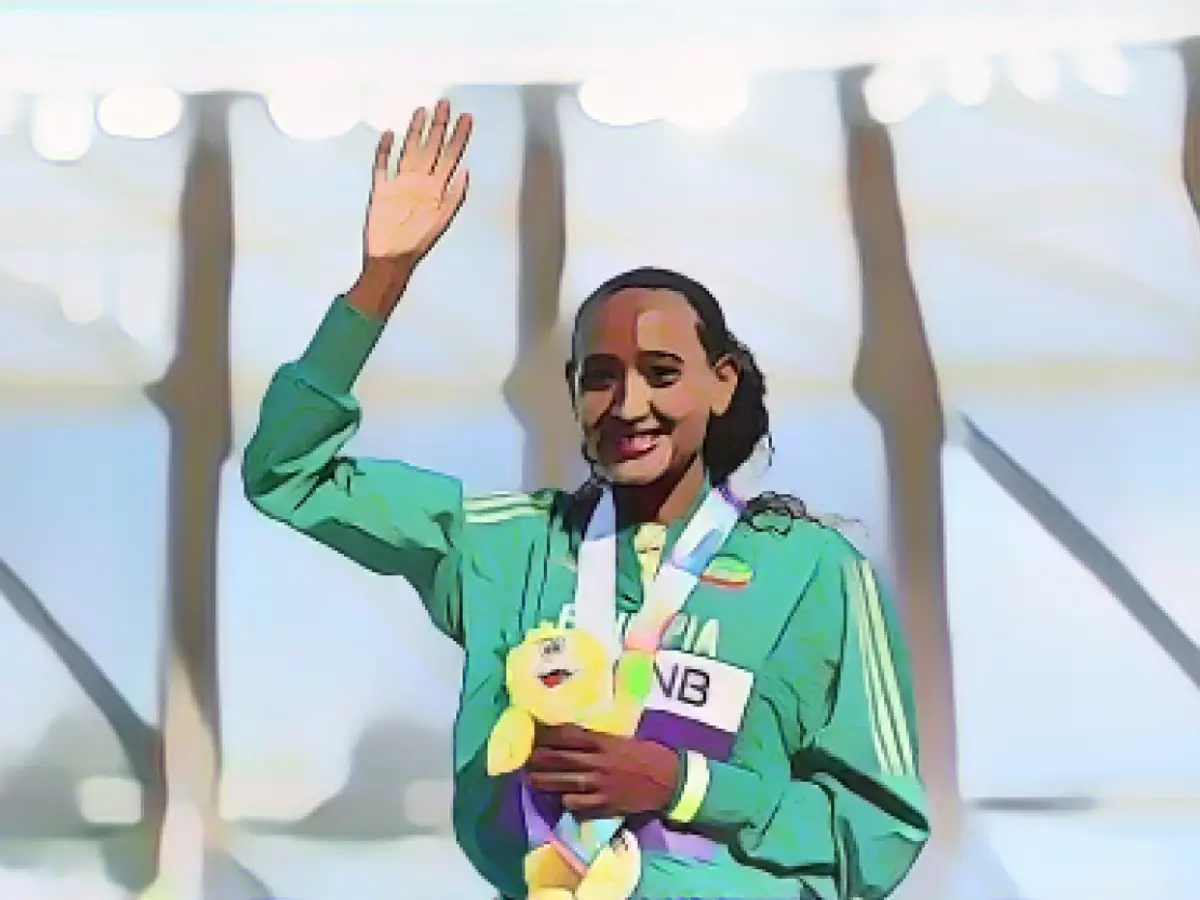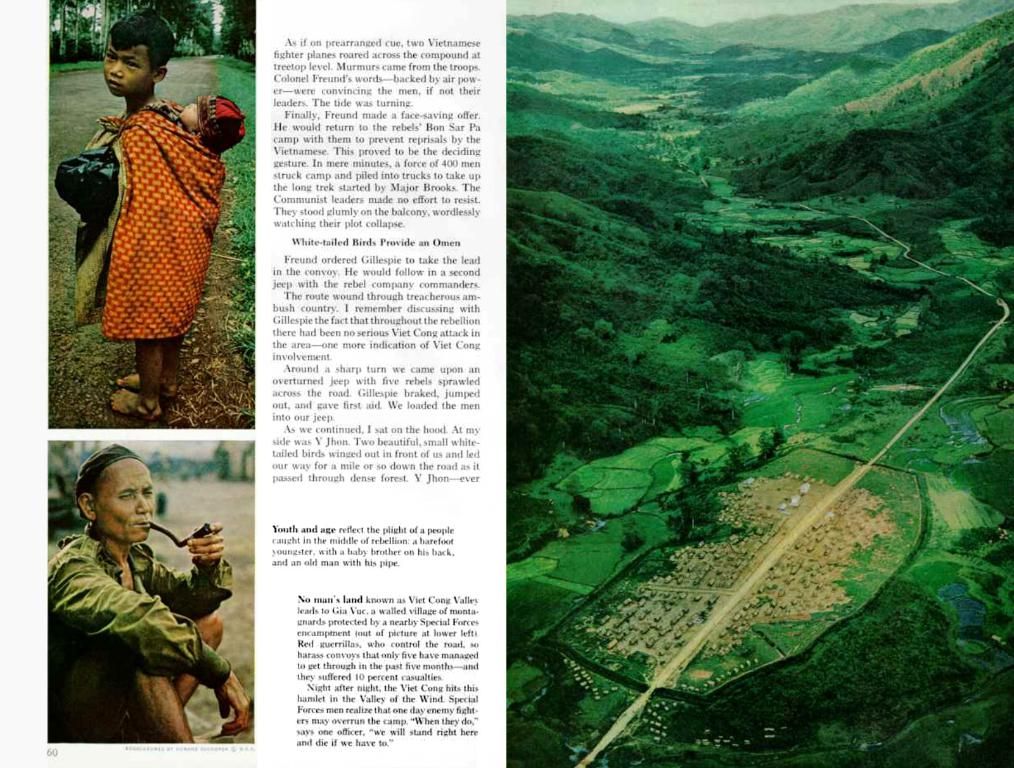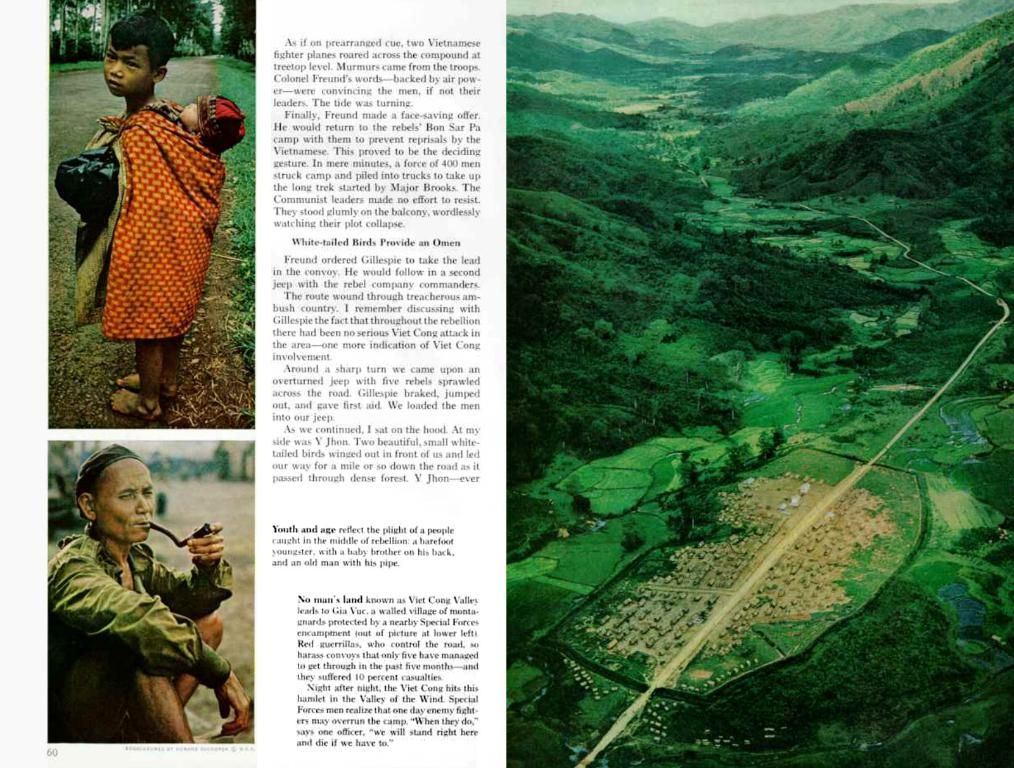"Man never knows when we may cross paths again," mused marathon runner Gotytom Gebreslase, separated from her family due to the turmoil in Ethiopia.
Usually, Gebreslase speaks with her family before and after races, but during this year's Athletics World Championships, such communication couldn't happen due to phone and internet outages in her hometown in Ethiopia.
Such circumstances left Gebreslase, as she crossed the finish line and celebrated her marathon win by raising her arms and then dropping to her knees, filled with mixed emotions.
"I wish I could share this joy with them," she told CNN Sports. "This is my second happiness."
This race in Eugene, Oregon, marked the most significant achievement in Gebreslase's running career - her first World Championship title and a personal marathon best time of 2:18:11.
While she was satisfied with her performance, she couldn't help but think about her parents, engulfed in armed conflicts in the northern region of Ethiopia.
A prolonged internet and phone blockade, imposed by the Ethiopian government in the Tigray region as part of conflicts between the government and the Tigray People's Liberation Front (TPLF), has resulted in sporadic and infrequent communication with her loved ones.
"Only God knows when we can meet again," she said. "My wish is to see them as soon as possible – that would make me happy."
However, recent developments indicate that both the Ethiopian government and TPLF have agreed to end hostilities permanently, potentially marking an end to the long-lasting conflict that has claimed thousands of lives, forced millions to flee, and left millions in dire need of food assistance.
In July, after Gebreslase claimed her World Championship title, she caught a news broadcast that featured an interview with her mother. This provided some comfort, as her mother wept while reflecting on the race and expressing hopes of seeing her children soon.
"Seeing that video made me feel reassured," Gebreslase admitted. "Seeing her respond to my performance was heartening – knowing she's supporting me despite her challenges, provides a sense of relief."
Gebreslase lives and trains in the Ethiopian capital, Addis Ababa, with support from her sister.
"She's been my friend and my sister – she's done so much for me," Gebreslase said. "She helps me move past the fact that my parents aren't with me anymore – that's a significant source of motivation."
On Sunday, Gebreslase will participate in the New York City Marathon, her fourth major marathon in two years, after taking first place in Berlin the previous year.
Top-tier competitors include the Israeli runner Lonah Chemtai Salpeter, who placed third at the World Championships behind Gebreslase; Kenyan Olympian duo Peres Jepchirchir, who won gold earlier this year, and Hellen Obiri, a two-time Olympic champion, along with the newcomer who secured second place in her maiden marathon.
However, Gebreslase will enter the race as the world's fastest runner.
"My performances at the World Championships boosted my self-confidence," she said. "It's inspired me to train harder to achieve better results, and it's changed my perspective."
While Ethiopia is renowned for producing some of the world's best long-distance runners, it's rooted in tradition. Since Abebe Bikila swept gold in the men's marathon at the 1960 Rome Olympics, barefoot, Ethiopia has continued to excel in the sport.
Situated at 2,355 meters above sea level, Addis Ababa is one of the world's highest capital cities. Its altitude and wooded trails make it an excellent training ground for endurance athletes.
Ethiopian runners achieved noteworthy successes at major marathons this year: Yalemzerf Yehualaw clinched victory in London despite stumbling and falling six miles before the finish line, while Tigist Assefa triumphed in Berlin and set a new record for women.
Males saw Tamirat Tola share the World Championship title with Gebreslase, completing the Ethiopian double in Eugene.
New York City's hilly and challenging course makes setting a fast time highly unlikely on Sunday, but triumphing in a fiercely contested field would further cement Gebreslase's position atop the sport.
Growing up, Gebreslase was tormented at school for wearing shorts and was often told that sports was only for boys. But with unwavering support from her family, particularly her mother, she persevered.
"They never discouraged me, but rather encouraged me – especially my mother," Gebreslasse admitted. "She's strong and loves sports. She was my mother and coach, helping me reach this stage."
Her thoughts of her parents will serve as motivation for the weekend's upcoming race – an opportunity to repay their investment in her running career.
"Because they had such a significant influence on me," Gebreslasse said, "I always wanted to make them proud."
Meron Moges-Gerbi and Bethlehem Feleke from CNN contributed to this report.








